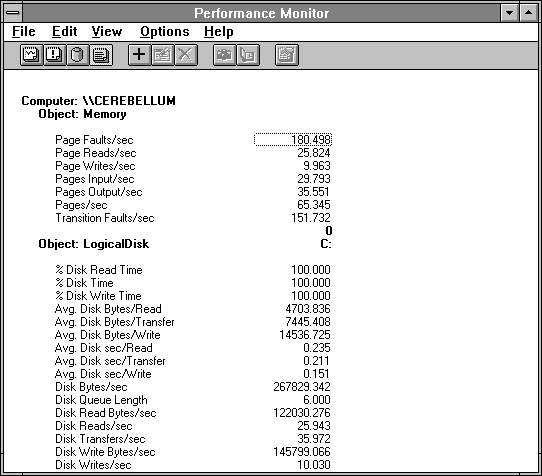
When your computer is memory poor, it's the disk that pays. Look at the poor C drive in the next figure.

Figure 5.18 Lack of memory causes excessive disk usage
Did your eyes snap first to the disk utilization, then to the queue length? This disk is maxed out. And look at those transfer times. Almost a quarter of a second on average. This disk is seeking its brains out.
There are 9.963 Page Writes/sec, and 10.030 Disk Writes/sec. Once again, values this close are good enough for bottleneck detection. Similarly we see 25.824 Page Reads/sec and 25.943 Disk Reads/sec. Looks like the memory manager is certainly dominating the use of this disk drive, and that all its activity is directed to this volume. This situation would be a good candidate for splitting the paging file onto separate volumes, to reduce the excessive seeking that we see.
There are some related figures. Dividing the value of Pages Output/sec by Page Writes/sec gives 3.578 pages per write. Multiplying that by 4096 bytes per page gives us 14655 bytes per disk write, which is remarkably close to the 14537 value of Avg. Disk Bytes/Write. You can't expect these to match perfectly, because Performance Monitor is writing to this disk once every ten seconds. Similarly, dividing Pages Input/sec by Page reads/sec yields a result of 1.154 pages per read. Multiplying this by the bytes per page gives us 4726 bytes per read, which is very close to the 4704 value for Avg. Disk Bytes/Read.